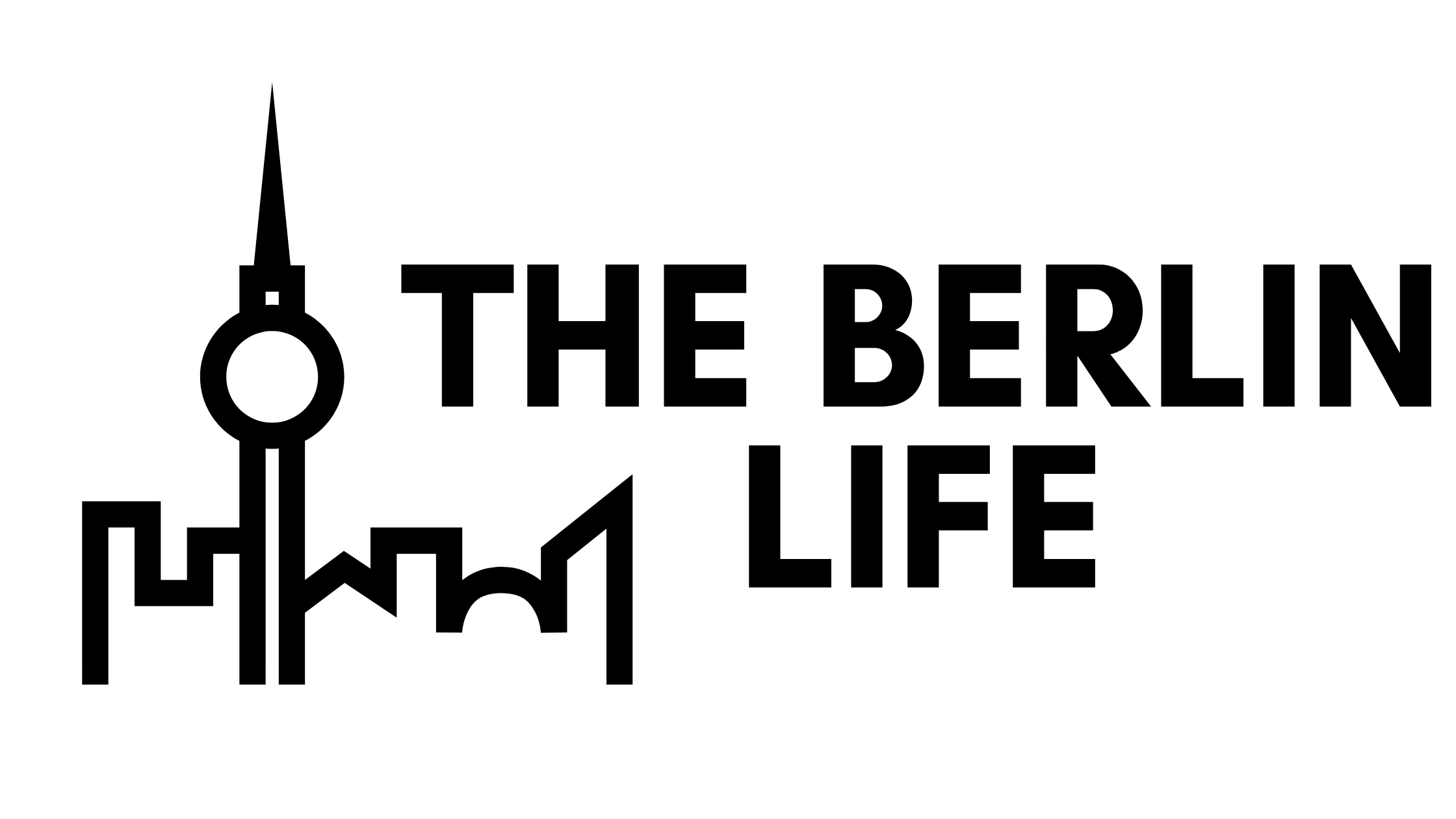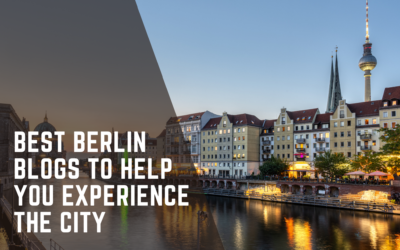PRACTICAL WAYS TO SAVE MONEY IN GERMANY
I still remember when I first moved to Berlin from Toronto in the summer of 2011. I came here on somewhat of a whim, having never lived abroad before. I hadn’t done any research before arriving, I didn’t speak German, and arrived completely alone. I literally had no idea about what to do to get properly settled in and back then there weren’t helpful blogs like ours. 😉
When I tried to open a bank account at Sparkasse for example, they told me I needed to register my flat first and then come back. Bewildered and confused, I left the bank with a piece of paper in hand, where the teller had written “Anmeldung”. I contacted my landlord who explained that you need to register your flat and get an official piece of paper before you can do anything in Berlin. I hired her intern to accompany me to the Bürgeramt one afternoon and get things sorted out.
There were many other things that I didn’t know either. For example, I lived in Berlin for years before I figured out the Pfand system. I paid too much rent when I lived in a holiday flat for a few months. I signed up for an expensive phone plan I didn’t really need.
Obviously, I don’t advocate being clueless and irresponsible like me, waiting years to find out the best hacks to living in Berlin. So I’m here to share a bunch of tips and tricks about how to save money in Germany.
Join Our Community
Stay ahead with the latest news on immigration developments, employment opportunities, and other updates about life in Germany. Get valuable insights, early access to Berlin Life guides, invites to community events, and more. Don’t miss out – subscribe to one of the most popular newsletters in Berlin.

PRACTICAL WAYS TO SAVE MONEY IN GERMANY
So how do you go about saving money in Germany and keep more of your hard-earned cash for yourself? We’ve plenty of ways to share about how you can save, which is so needed during these tough economic times.
Recommended reading: In stats: Germans among the biggest money savers in the world
We also recommend bookmarking this page as your main guide about how to save money in Germany. We’ll keep it updated as we learn about even more ways to save money here. Hint – if we’ve missed something drop a comment below or send us an email.
1) Shop at Discount Supermarkets
Being new to Germany, you might not know where to shop and simply head to the first supermarket you see, not knowing the differences between the various supermarkets. When I first started living here, I shopped at a more upscale Biomarkt. While their stores provide high-quality food, their offerings are really overpriced. You can easily get food at much lower prices by shopping elsewhere, where there’s not much difference in quality and sometimes, feature the exact same brands. Your money will go a long way if you shop at stores like Aldi, Lidl, Penny, and/or Netto.
Since inflation has driven up food costs so much, I now shop more regularly at Netto, as it really helps to keep my monthly budget under control.
2) Visit DM and Rossman
DM and Rossman are drug store chains equivalent to Walgreens in the US and Shoppers Drug Mart in Canada. The notable difference is that you can’t actually buy medicine at these stores, which can only be purchased at an Apotheke. Both chains can be found throughout Germany and you can buy everything from personal hygiene products to wine, household cleaning items, umbrellas, clothing, and more. The best thing is that it’s often cheaper to purchase items like shampoo or toilet paper at DM or Rossman than it is at a supermarket. They have sales quite frequently too, giving you an opportunity to save money on various things.
3) Go to Turkish or Asian Markets
Berlin is home to several Turkish and Asian markets which offer not only a better variation of certain foods but also at a much cheaper price. While specialty Asian markets are plentiful, the mother of all Asian supermarkets can be found in East Berlin’s Lichtenberg at the Dong Xuan Center. Turkish markets are also located throughout the city, but locals tend to favor open markets like the one along Maybachufer.
4) Get Your Pfand On
I’m embarrassed to say that I lived in Germany for years before I found out about the Pfand system. When my friends found out that I recycled all my water bottles and left my beer bottles out on the street for others to collect, they laughed and said, “Don’t you like money?”. Embarrassed, I became a steadfast user of the system immediately following that conversation.
Recommended Reading: A look at Germany’s bottle deposit scheme
What is Pfand you ask? It’s a deposit system, where a small deposit is added to the price of certain items like the aforementioned water and beer bottles. You can later return your empties to the supermarket, where you’ll find a machine that takes the bottles and issues you a credit receipt that you can use towards a purchase at the store or even exchange for cash. It’s a great way to get some money back, as well as help reduce waste.
4) Join the PAYBACK Program
PAYBACK is Germany’s most popular rewards and loyalty program where members can collect points by shopping at partner stores like REWE, DM, or Fressnapf. You can use your points to receive discounts, vouchers, and even gifts. It’s free to join and the fact that more than 30 million people in Germany have a PAYBACK card makes signing up for the program ia no-brainer.
While PAYBACK points can’t be collected at all stores, I’ve definitely benefitted from the program over the years. From time to time, I’ve used my PAYBACK credit to get a free order of premium cat food.
5) Signup for Other Programs Too
While PAYBACK is the most popular loyalty and rewards program, there are other ones worth joining, like the DeutschlandCard program. DeutschlandCard can be used at supermarkets like Netto and Edeka and even at shops like H&M.
6) Pay In Installments
If you need to purchase big-ticket items, you may want to consider buying and paying them off in installments. Several stores in Germany offer this option and often, with 0% interest. Generally, you need to have a good credit history to qualify but it’s definitely a great way to save money. When I moved to a new flat last year, I did this with a couple of pieces of furniture I ordered from Amazon and it really helped soften the financial blow (moving flats in Germany can be quite expensive!).
Recommended Reading: How Much Does It Cost To Move To Germany? Use Our Calculator!
7) Eat at Berlin’s Fast Food Establishments
While not that healthy and likely not something you’d want to eat too often, dishes such as döner kebab and currywurst are not only a cheap meal option but are a fun way to try out some well-known local specialties.
Another tip to save money on eating out in Germany? Head to a bakery in the morning for a coffee and freshly baked bread, or even a small sandwich. Bakeries tend to be pretty affordable – the trick is to avoid the more trendy or hipster ones where prices will be higher due to their popularity.
For lunch, many supermarkets have a counter where you can purchase sandwiches, soups, salads, and even Buletten (a Berlin-style hamburger).
8) Coupon Like a Grandma
Over the years, I’ve started to become more frugal and I love nothing more than being able to save money. Each time I get a discount on something, I feel like I’ve won a major battle against “the man”. So when I order something online like makeup from Douglas or Flaconi, I’ll search across various websites like Gutscheinpony or Gutscheinsammler. I almost always get deals like free shipping or having money knocked off the purchase price.
9) Avoid Using Certain ATMs
You’ll find ATMs all around Germany, but avoid using machines not associated with your bank like Euronet, as they tend to charge extraordinarily high fees to withdraw cash. It’s better to take out money from one of your bank’s ATM machines or ask for a cash withdrawal when you’re paying at the supermarket. While there is usually a minimum purchase amount when taking cash from the supermarket, there are no fees involved, and is just another way to save money in Germany.
10) Take Part in Food Rescue Programs
The German population wastes tons of food each year. At a time of high inflation, supply shortages, and worsening climate change, we can expect more food shortages in the future not only in Germany but around the world. As such, we shouldn’t waste our precious food and companies like OLIO, ResQ Club, and SIRPLUS allow you to take part in food rescue programs where you not only prevent waste but also save money. It’s a win-win situation.
11) Travel Germany With a Bahncard
If you travel a lot by train using the Deutsche Bahn, it’s wise to purchase a Bahncard to qualify for discounts on your tickets. Over the long run, you’ll save a lot of cash this way. Note, it’s not really worth the annual fee if you don’t use travel by train that much. It’s also a notoriously hard membership to cancel, so if you want to terminate, do so at least three months in advance.
12) Journey by Bike
While many people in Germany complain about the country’s lack of cycling infrastructure, many German cities have tons of bike paths, making it easy to travel throughout most of the country. Cycling is much more common here than it is in North America where public transit or the proper infrastructure are typically lacking. Cycling is healthy and it’s just another way for you to keep cash in your pocket.
One thing to watch out for is bike theft and it’s so rampant here that some speculate a bike is stolen every 90 seconds in Germany. I definitely recommend taking out bike insurance.
13) Take Public Transit
Another way to save money in Germany is to take public transit. Most major cities have a decent transportation network that will get you to wherever you need to go. In Berlin, there are underground and aboveground trains, as well as trams, buses, and even ferries. If you travel by public transit quite frequently, get the €49 ticket which starts in May 2023 and will allow you to travel nationwide (with some exceptions).
14) Skip Out on Purchasing New Items
Materialism isn’t as rampant in Germany as it can be in other parts of the world. Buying things secondhand or getting them for free isn’t something that’s looked down on here and is in fact, quite normal. Many will judge your consumption habits if you’re always purchasing new items.
There are tons of local Facebook groups across the country and in Berlin, we have Free Your Stuff Berlin or Sell Your Stuff Berlin. Ebay Kleinanzeigen is comparable to Craigslist and is another place where you can buy or sell items, as well as get things for free. Some people furnish their entire flats with reused items, even washing machines and fridges. Many locals leave items in their building’s stairwells or lobbies for neighbors to take too – I recently spotted my neighbor snapping up a glass vase and another day, I saw another neighbor taking some books. Vintage shops are also common, as are fleamarkets.
15) Buy Liability Insurance
An employee at my bank once asked me if I had liability insurance, to which I replied “Nope.” He gasped in shock and told me, “Everyone in Germany has liability insurance. You must get liability insurance.” Even though I came to the bank that day to talk about investing, I left with liability insurance, as well as two other types of insurance.
It won’t take you too long to discover that Germany is an insurance-loving nation and specifically, liability insurance can help protect you from financial losses in case of accidents or other kinds of incidents. In Germany, liability insurance is often required for certain activities, such as renting an apartment or owning a pet. By getting liability insurance, you can have peace of mind knowing that you are covered and can save money by avoiding costly legal fees and damages.
People here won’t hesitate for a moment to sue you and hold you liable for damages, so getting liability insurance is a must for anyone living in Germany.
16) Switch Electricity Providers
Another way to save money in Germany is by switching your electricity provider. You have ample choice of electricity providers in Germany, and by doing a bit of research on comparison sites like CHECK24, you can find the one that offers the best rates and packages for your needs. Popular providers are Vattenfall, Ostrom, and NaturStrom.
Switching on an annual basis can result in significant savings on your monthly electricity bills, which is ever so needed in these trying times of high energy prices. Make sure to compare offers and read the fine print, before committing to a switch. If you’re interested in knowing other ways to save your energy (and money), read our detailed guide.
17) Use Your Student Discounts
Students in Germany not only get access to (an almost) free education, they are privy to discounts for all sorts of things like public transit (city and nationwide), public pools, museum admissions, and movie tickets. To take advantage of these discounts, make sure you keep your student ID on you at all times.
18) Seek Out the Best Deal on Price Comparison Websites
Before purchasing anything in Germany, shop around for the best deals. Doing so can help you save a lot of money, whether you’re shopping for furniture, securing a new energy provider, purchasing insurance, or something else. Top sites include Idealo, Check24, Preis.de, Geizhals, and Billiger.de.
19) Invest in a Prepaid SIM Card
Getting out of a legal contract is notoriously tricky in Germany, especially if you don’t speak German and aren’t familiar with the long cancellation periods. When I first moved to Berlin, I signed up for an overpriced €60 monthly contract with Vodafone, and when I attempted to cancel it upon moving back to Canada, I was shocked to find it was going to cost me several hundred euros to close my account. When I later returned to Berlin, I opted for a prepaid SIM from Aldi, which doesn’t involve a contract and offers a range of affordable options. I pay €15 a month for 10 GB of data and when needed, I top it up for calls or texts.
Popular providers in Germany include Aldi Talk, Blau, Congstar Prepaid, Lidl Connect, Edeka Mobile, Otelo, and Tchibo Mobile.
20) File Your Tax Return
If you’re a full-time permanent employee in Germany, filing your tax return on an annual basis is one of the smartest things you can do as it’s highly likely you’ll receive some sort of refund. If your situation is complex, consider hiring an accountant who can help you with knowing which deductions you can claim and other ways to save money. If your financial situation is straightforward, use Steurgo, Taxfix, or Wundertax who offer services in English, as well as easy walkthroughs that will see you complete your tax return in minutes.
Use this list of practical ways to save money in Germany and make the most of your new life here.
RELATED CONTENT
How To Make Friends In Berlin In 2024
Find out the different ways you can make friends in Berlin with these tips about how to meet new people in the German capital.
Best Berlin Blogs To Help You Experience The City
Keen to explore the city’s history, find a brunch spot, or get tips on finding a flat? These are the best Berlin blogs to get you started.
A Guide To The Cost Of Living In Berlin In 2024
A personal guide to the cost of living in Berlin. Learn what locals are paying & use our handy calculator to figure out your expenses.

Cheryl Howard, Founder @ The Berlin Life
Hi, I’m Cheryl. My mission is to help you move to Berlin and find work.
A Canadian in Berlin for 10+ years, I have the unique experience of moving to Berlin – not once, but twice. During my time in Berlin, I’ve had five different visas and worked as both a freelancer and a permanent employee for numerous Berlin companies. I even managed to find a new job during the pandemic and again in 2023, during Germany’s recession and massive layoffs in tech.
My day job has involved work as a hiring manager, overseeing the recruitment of countless people, as well as a team coach helping teams and individuals work better and find happiness in their careers. Through my side projects, I’ve also shared my personal experiences by publishing a series of helpful blog posts, creating a thriving community of job seekers, and hosting events to help people find work in Berlin. In 2021, I decided to put my coaching and recruiting talents to use by creating The Berlin Life, bringing my existing content and community together in one spot.
The combination of my personal and professional experience means I know exactly what it takes to move to Berlin and find work.




